Post-Election Analysis: Trump’s Tax Plans and Economic Impact
Join hosts Kyle Hulehan and Erica York in this episode of The Deduction as they break down the US tax policy implications of Donald Trump’s next presidential term.

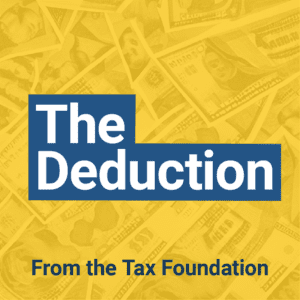
Welcome to The Deduction, a Tax Foundation podcast and your guide to the complicated world of tax and economics.
From the impacts of tariffs and trade wars to debates over who pays and how much, each episode, our experts untangle another aspect of the tax code.
Apple Podcasts Google Podcasts Spotify
Castbox Stitcher Amazon Music RSS Feed
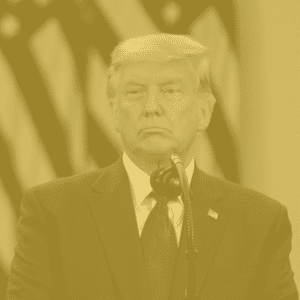
Join hosts Kyle Hulehan and Erica York in this episode of The Deduction as they break down the US tax policy implications of Donald Trump’s next presidential term.
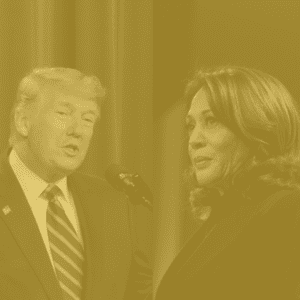
Neither presidential candidate has a perfect tax plan. But what changes could Trump and Harris make to their respective tax plans to better serve American workers and the economy? In this episode, we dissect their plans and provide practical solutions for improvement.
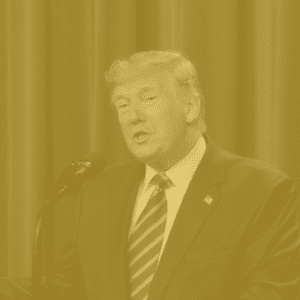
While tax policy was almost nonexistent in the first debate between Vice President Kamala Harris and former President Donald Trump, this episode will explore each candidate’s latest proposals in greater depth.

Tariffs are a hot topic this election cycle for both President Biden and former President Trump. But why are tariffs so popular despite their economic downsides?

Financial literacy is a problem that educators around the country are trying to tackle. Today, we’re speaking with Jed Collins, a former NFL player, who is leading the charge in the financial education arena by guiding high school and college students, as well as professional athletes, through the world of finance.
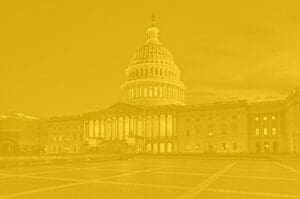
One year after its enactment, there are concerns about the Inflation Reduction Acts overall fiscal impact, the additional complexity it introduces to the tax system, and the sustainability of its initiatives.

Erica York, senior economist at the Tax Foundation, joins Jesse to discuss how the book minimum tax came to be, if it will really stop companies from paying zero in taxes, if the new Republican House will revisit this debate, and what the tax’s impact will be on jobs and economic growth.

When it comes to international economic competition, people often frame the argument as the U.S. versus China. But across the Atlantic, nation-states in the European Union have been working hard to show the world that they deserve to be considered an economic force. Rising up to this challenge for the EU is easier said than done.

Tax Foundation recently announced that Daniel Bunn is our new president and CEO. In this special episode of The Deduction, Daniel chats with Jesse about how he got into tax policy. They discuss his time in the Senate, his plans for Tax Foundation’s future, and even his obsession with smoking meats.
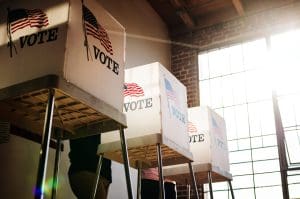
The 2022 midterm elections are wrapping up, and taxpayers are looking at a divided Congress for the next two years. Senior Policy Analyst Garrett Watson sits down with Jesse to give a quick analysis of what these elections mean for tax policy.
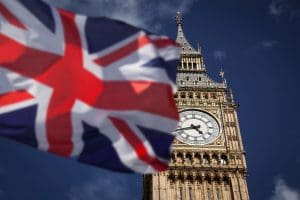
This episode of The Deduction is part one in our ongoing coverage of the UK’s tax battles. Jesse chats with Tom Clougherty, research director and head of tax at the Centre for Policy Studies in London about what went down in the UK this fall: from the leadership elections to the countless U-turns the new prime minister has made to try and reform the country’s tax code.

From the Tax Cuts and Jobs Act in 2017 to the Inflation Reduction Act, signed into law just this summer, lawmakers across the political spectrum are often tempted to implement temporary tax reforms. Garrett Watson joins Jesse to discuss the pros and cons of writing tax laws that have an end date and why we find ourselves having a debate at the end of each year about so many temporary provisions.

Maine has blueberry taxes. Alabama has mosquito taxes. Each state and county has its tax quirks. But when state and local governments want to raise revenues, there are four key taxes they turn to.

The Inflation Reduction Act includes a book minimum tax, which is raising the eyebrows of accountants everywhere. Scott Dyreng, a professor of accounting at Duke University, and Daniel Bunn join Jesse to discuss how these minimum taxes work and how companies aim to comply with all these new complex rules and tax increases.

The Internal Revenue Service (IRS) finds itself under fire often. Outdated technology, millions of unanswered calls, and cafeterias full of paper returns—it’s clear that America’s tax collector needs improvement. Jesse is joined by Courtney Kay-Decker and Jared Ballew, chair and vice chair (respectively) of the Electronic Tax Administration Advisory Committee (ETAAC). They discuss ETAAC’s annual report that lays out what the IRS is doing right, and what it’s doing wrong, as the agency continues to see its duties grow.
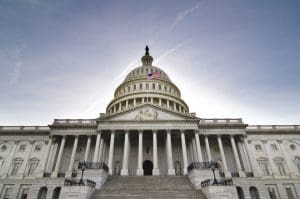
The House of Representatives is set to pass the Inflation Reduction Act, the latest iteration of President Biden’s tax and climate agenda. Garrett Watson joins Jesse to discuss what sacrifices were made by key lawmakers to bring this bill to the finish line. They also look at what the economic impact of this proposal would be as the country continues to face historic rates of inflation.
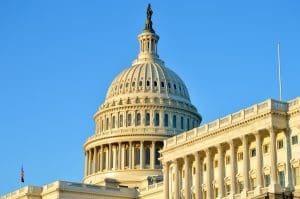
The Inflation Reduction Act would raise taxes on corporations and top earners with the goal of funding a number of programs to reduce carbon emissions, address prescription drug costs, and spur the economy. Garrett Watson joins Jesse Solis to talk through what these tax changes would mean for the economy: Will they reduce inflation, and do they break the President’s pledge not to raise taxes on those earning less than $400,000?

From policy to filing, from accounting to compliance: technology is truly shaping the future of taxes. We chat with Ben Alarie, CEO of Blue J, about how companies are utilizing technology to comply with the tax code and how policymakers can use technology to advance tax laws that support an ever-evolving economy.

On July 1st, 2021, over 130 countries agreed to an unprecedented 15% global minimum tax. One year later, the deal appears stuck. Daniel Bunn joins Jesse to discuss what this delay means for countries and multinational corporations, and what the path ahead looks like for global tax policy and competition.

Oil prices have skyrocketed, posing a new risk to the post-pandemic recovery. Feeling the pressure to respond, policymakers have proposed everything from gas tax holidays, tapping into strategic reserves, and even rebate cards. One idea that has crawled back from the dead: “Windfall Profits Taxes.” This idea is seemingly simple: legislation targeted at the “excess” profits of oil companies. However, as with anything in tax policy, the reality is much more complicated.

Amidst soaring inflation, policymakers across the political spectrum proposed many ideas to soften the blow of higher prices–especially for low-income workers and families. One idea that caught on quickly: sales tax relief on groceries. The idea had its merits, but Tax Foundation research shows that it may have missed the mark.

Property taxes are highly unpopular and can get extremely confusing. But when done right, they can be quite good. We talk through what a well structured property tax should look like, which states have good property tax structures in place and which ones don’t, and how these taxes impact a state’s competitiveness in an increasingly mobile economy.

Amidst bipartisan climate negotiations on Capitol Hill, there have been renewed calls for a carbon tax. Carbon taxes have long been magnets for political controversy. But from an economic standpoint, they deserve to be taken seriously. Here’s why.

In more than 100 years of state income taxes, only four states have ever moved from a graduated-rate income tax to a flat tax. Another four may adopt flat tax legislation just this year. We discuss what flat taxes are, what they mean for taxpayers, and why so many states are making a push for them this year.
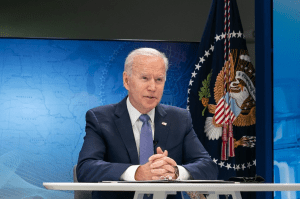
In a letter to lawmakers, the 46th President said that his $5.8 trillion budget package would “[grow] our economy, while ensuring that the wealthiest Americans and the biggest corporations begin to pay their fair share.” We break down what the President is proposing for this upcoming fiscal year and what its impact would be on the U.S. economy in the face of record-high inflation.
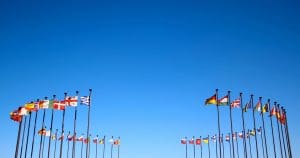
Late last year, over 130 countries agreed to a global minimum tax, a purported end-all and be-all to the “race to the bottom.” But this policy is complex, and countries are already struggling to implement these new rules. We talk through how this policy came to be, identify where problems are beginning to arise, and dispel some common myths about this emerging new tax system.